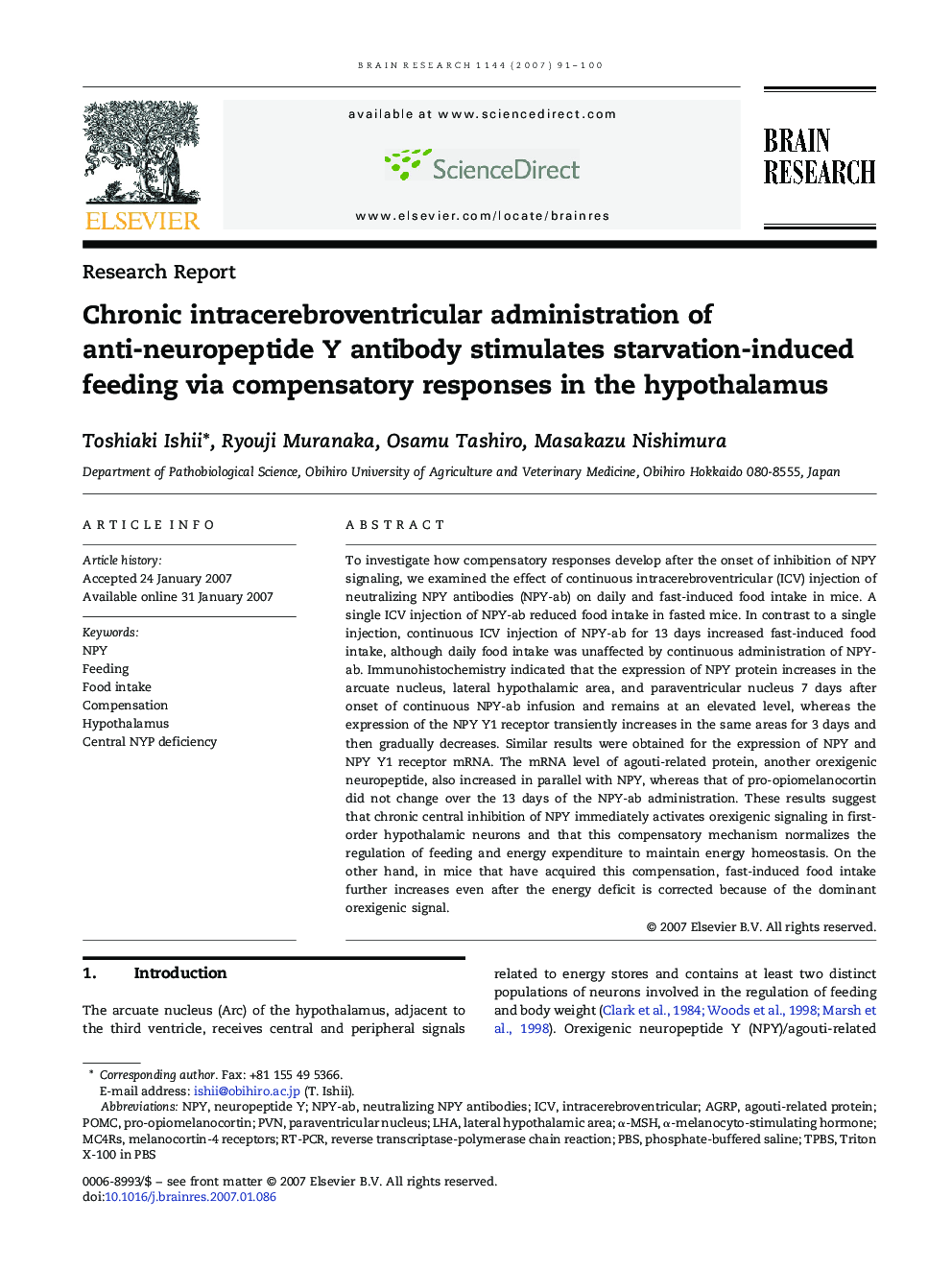| کد مقاله | کد نشریه | سال انتشار | مقاله انگلیسی | نسخه تمام متن |
|---|---|---|---|---|
| 4331141 | 1614295 | 2007 | 10 صفحه PDF | دانلود رایگان |

To investigate how compensatory responses develop after the onset of inhibition of NPY signaling, we examined the effect of continuous intracerebroventricular (ICV) injection of neutralizing NPY antibodies (NPY-ab) on daily and fast-induced food intake in mice. A single ICV injection of NPY-ab reduced food intake in fasted mice. In contrast to a single injection, continuous ICV injection of NPY-ab for 13 days increased fast-induced food intake, although daily food intake was unaffected by continuous administration of NPY-ab. Immunohistochemistry indicated that the expression of NPY protein increases in the arcuate nucleus, lateral hypothalamic area, and paraventricular nucleus 7 days after onset of continuous NPY-ab infusion and remains at an elevated level, whereas the expression of the NPY Y1 receptor transiently increases in the same areas for 3 days and then gradually decreases. Similar results were obtained for the expression of NPY and NPY Y1 receptor mRNA. The mRNA level of agouti-related protein, another orexigenic neuropeptide, also increased in parallel with NPY, whereas that of pro-opiomelanocortin did not change over the 13 days of the NPY-ab administration. These results suggest that chronic central inhibition of NPY immediately activates orexigenic signaling in first-order hypothalamic neurons and that this compensatory mechanism normalizes the regulation of feeding and energy expenditure to maintain energy homeostasis. On the other hand, in mice that have acquired this compensation, fast-induced food intake further increases even after the energy deficit is corrected because of the dominant orexigenic signal.
Journal: Brain Research - Volume 1144, 4 May 2007, Pages 91–100